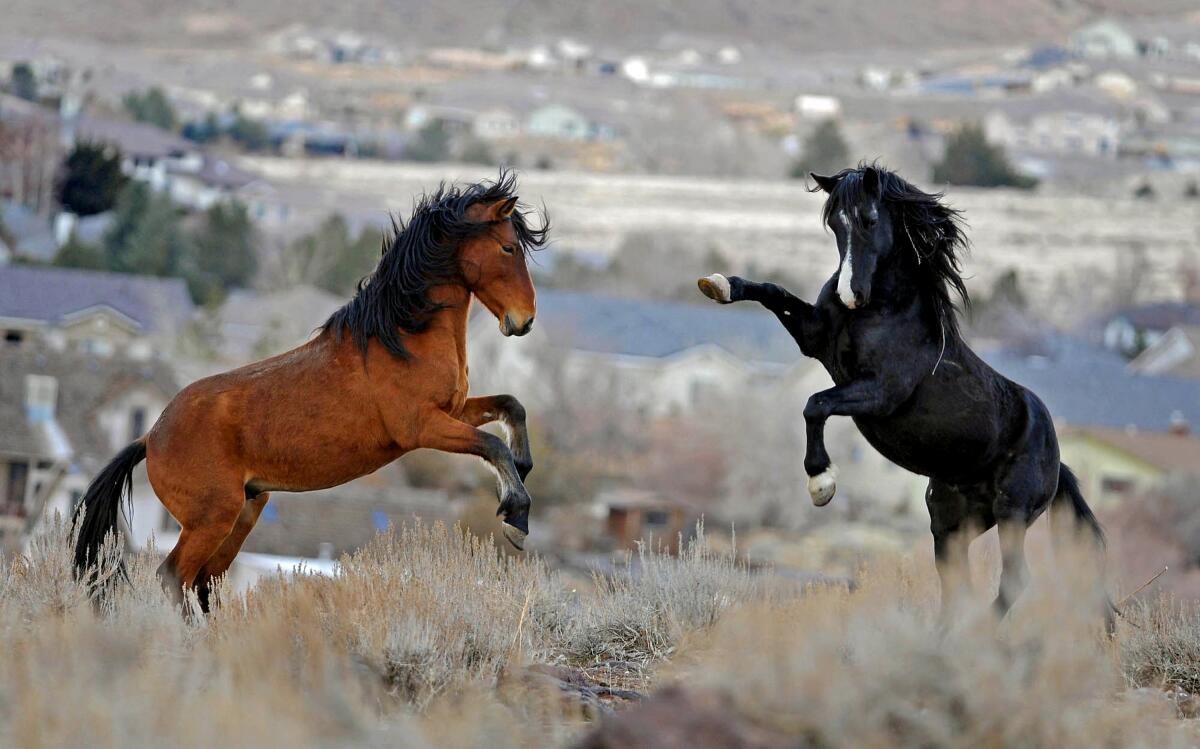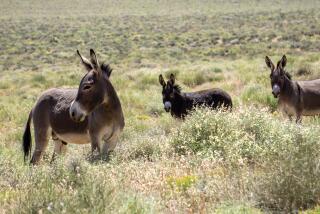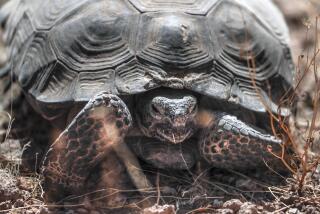Letters to the Editor: Those gorgeous herds of wild horses are non-native and destroying the West

- Share via
To the editor: Manda Kalimian’s opinion piece, “Let wild horses do their part to save the West,” is wildly off base.
Wild horses are not in crisis; they are creating a crisis. Most inhabit and destroy one of the West’s most fragile and biologically rich ecosystems, the sagebrush steppe of the basins and intermontane.
The biological diversity of the Western steppe faces many threats, not the least of which are non-native wild horses. Their destructive foraging and trampling compete with imperiled native species, including the greater sage grouse, struggling against extinction.
Wildlife professionals join cattle grazers in opposition to the extreme overpopulation of wild horses in the West. Today, permitted cattle grazing on public lands is managed to coexist with native wildlife.
Unfortunately, the resources that the U.S. Bureau of Land Management must sink into futile wild horse control are resources that it cannot devote to wildlife conservation. It is time to repeal the 1971 Wild Horses and Burros Act.
Kim Thorburn, Spokane, Wash.
The writer is a Washington state Department of Fish and Game commissioner.
..
To the editor: Large-scale cattle grazing has trampled much of the public lands of the West to dust by removing edible grasses, wildflowers and shrubs, leaving behind a few unpalatable plants and spreading invasive weeds.
While traveling the West, I have marveled at beautiful wild horses and burros, but these non-native grazers, though not nearly as destructive as cattle, also harm the land.
To truly re-wild the West, the natural landscape should be allowed to regrow to the benefit of deer, bighorn sheep, sage grouse, jack rabbits and the many other native grazing fauna and their predators that depend on the flora that has been decimated by overgrazing.
When out on our public lands, we should be able to see herds of hundreds of pronghorn instead of stepping around cow patties plopped down by subsidized grazing cattle.
Tony Baker, Rancho Palos Verdes
More to Read
A cure for the common opinion
Get thought-provoking perspectives with our weekly newsletter.
You may occasionally receive promotional content from the Los Angeles Times.









